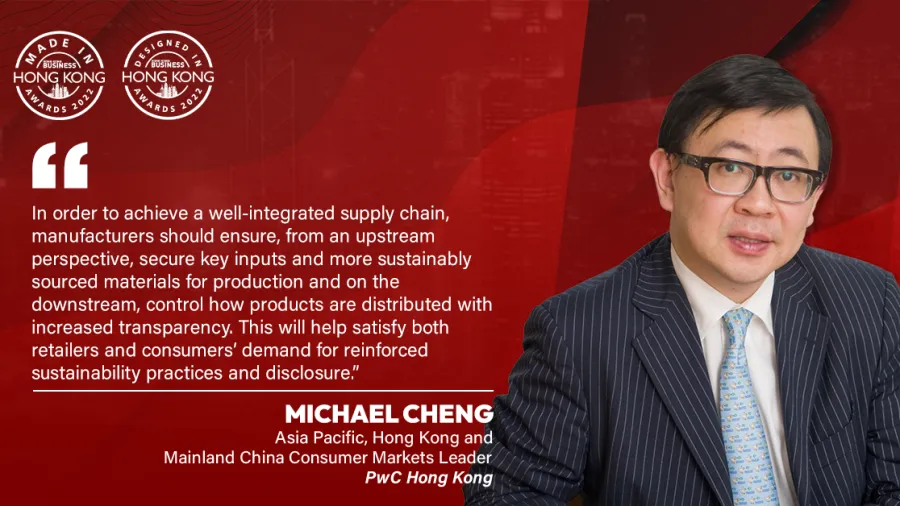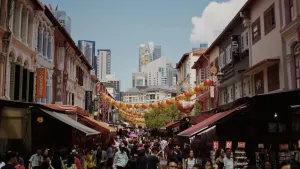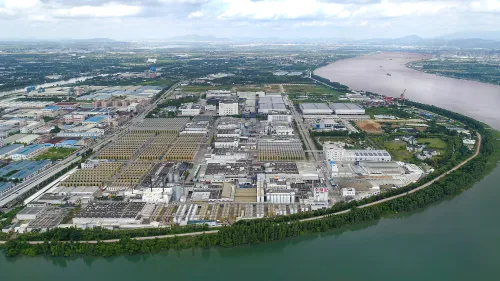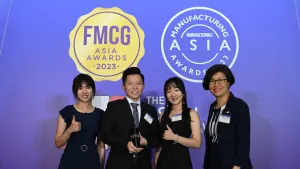
Market uncertainty raises doubts on supply chain resilience, sustainability
Michael Cheng observed that manufacturers are scrambling to reconfigure their entire supply chain to stay relevant, agile, and competitive
Supply chain disruptions, geopolitical tensions that led to supply shortages and logistic bottlenecks as well as shaking off the impact of the COVID-19 pandemic continues to raise doubts about the sustainability of the manufacturer's supply chain.
Manufacturers have been agitatedly reworking their business models to mitigate supply chain disruption through vertical integration. However, will this be enough?
Speaking to Hong Kong Business, PwC Hong Kong’s Asia Pacific, Mainland China, and Hong Kong Consumer Markets Leader Michael Cheng said that manufacturers should look beyond their short-term strategies and prepare for market changes in their medium to long-term strategies to future-proof their operations and anticipate new trends, as well as to ensure quick and successful responses to such uncertain environments.
“Having a well-integrated supply chain will satisfy both retailers’ and consumers’ demands for reinforced sustainability practices and disclosure,” Cheng said.
With over 36 years of professional assurance experience in Hong Kong and the United Kingdom, Cheng specialises in IPO advisory, business and due diligence reviews, asset injections and M&A activities in Hong Kong and Mainland China.
As PwC Asia Pacific, Mainland China and Hong Kong Consumer Markets Leader, Cheng has had extensive experience in public speaking on the general trend and outlook of the Hong Kong retail market and has been invited to deliver keynote speeches at leading industry events.
He is also a member of the Hong Kong Institute of Certified Public Accountants, Institute of Chartered Accountants in England and Wales and Hong Kong Retail Management Association’s Digital Advisory Panel, and the chairman of the Audit Committee for UNICEF Hong Kong.
This year, he has been invited to judge the best amongst the manufacturing industry at the Made in Hong Kong Awards and Designed in Hong Kong Awards 2022.
What have been the issues and challenges that Hong Kong manufacturers faced in the past year? How have they overcome these?
Over the past several decades, there has been a structural shift in Hong Kong’s economy away from manufacturing to service, trade, and other high-value-added activities. Whilst most manufacturers have moved their operations to the Mainland to reduce costs, some retain their sourcing and managerial offices in Hong Kong drawn by the city’s competitive advantages including its prime location, simple and low tax system, free flow of information and capital, efficient infrastructure, strong intellectual property regime, as well as a level playing field for business.
The COVID-19 resurgence in Hong Kong during the first quarter of 2022 led to a new wave of disruption that challenged our status quo regarding the core drivers of demand: price, quality, and convenience. Many manufacturers went into self-preservation mode. They began simplifying their supply chains, streamlining their product lines and cutting down on non-core services.
More uncertainties have emerged in recent months at a global scale - geopolitical tensions, inflationary pressure, supply chain issues, climate change, and above all, fear of global recession. Consequently, many manufacturers have yet to fully resume their production capacity and re-engage with their customers.
As an export-oriented economy under the current Hong Kong-US dollar peg, our export is inevitably affected by the appreciating US dollar as a result of the interest rate hike in recent months. Land shortage and lack of talent in middle and high managerial levels of manufacturing are other pressing issues. The combined effect of these threats cast a shadow over the short-term market prospect for manufacturers.
To ensure quick and successful responses to changing market environments, manufacturers must look beyond their short-term strategies and prepare for market changes in their medium- to long-term strategies to future-proof their operations and anticipate new trends. Furthermore, the government should offer incentives such as housing subsidies and education allowances to attract overseas talents, along with friendlier immigration rules and visa application procedures for talents and GBA integrated policies for higher mobility.
It is common knowledge that digitalisation is becoming an integral part of the operations of many industries. How do you think the manufacturing industry can leverage the latest technologies in ensuring operational efficiency and keeping up with the times?
The COVID-19 pandemic has caused outsized disruptions to the global supply chain network, and in response, manufacturers and retailers are scrambling to reconfigure, if not reinvent their entire supply chain to stay relevant, agile, and competitive. Addressing supply chain pain points will form a new source of competitiveness for manufacturers. Localisation and end-to-end digitisation will become the norm. Distributors should employ data to improve supply chain visibility, hone operations and rethink investments in customer-to-manufactory (C2M) and direct-to-consumer (DTC) models.
Supply chain transformation has been propelled by the DTC developments enabling manufacturers to scale quickly with new technological advancements. Over the past two years, many manufacturers have evolved to adopt a DTC strategy to circumvent the supply chain disruptions brought about by the pandemic. Examples of supply chain transformation include algorithms for inventory optimisation in real-time, enhanced connection between points of sales and warehouses, adoption of blockchain and IoT sensors for higher transparency and control and use of AI to offer instant discounts to fill shipping boxes for greater cost efficiency. Despite traditional supply chains having always been considered as a cost to serve, the role of a supply chain in DTC now exceeds far beyond fulfilment alone and needs to be more agile and tech-enabled to meet new challenges.
The manufacturing sector should also work with the government to establish training programmes tailored for manufacturing – such as information technology, AI, big data and industrialisation 4.0 – which are open to the workforce. This can create a talented workforce in the sector.
Where do you see Hong Kong’s manufacturing industry in the near future? Are there any key trends to watch out for in the coming years?
As consumer concerns about climate change intensify, sustainable consumption is likely to grow both as a disruptive force and a driver of value. Consumer awareness is on the rise for products that are ‘better for the environment and society’, especially amongst younger consumers, who are more likely to opt for products they believe will make a difference, albeit at a higher price. Consumers are perceiving locally sourced and locally made products to be of higher quality.
The source-local trend has appeared as manufacturers seek to consolidate their upstream supply chains and investors go value-hunting. Retailers and wholesalers are attaching more importance to ESG involvement by manufacturers as socially conscious consumerism continue to grow. Manufacturers can introduce circularity (ensuring end products go back into the supply chain without wastage) into each node of their supply chain operations and maximise outcomes using the 3Rs: Reduce, Reuse and Recycle.
For many manufacturers, the current market uncertainty has raised doubts about the resilience and sustainability of their supply chain setups. The latest pandemic and geopolitical tensions led to supply shortages and a logistics bottleneck. Supply chain disruptions continue to impact the sourcing of raw materials and transportation of finished goods to customers. Manufacturers have been reworking their business models to mitigate supply chain disruption through vertical integration.
In order to achieve a well-integrated supply chain, manufacturers should ensure, from an upstream perspective, secure key inputs and more sustainably sourced materials for production and on the downstream, control how products are distributed with increased transparency. This will help satisfy both retailers' and consumers’ demand for reinforced sustainability practices and disclosure.
Coming back to judge this year’s Made in Hong Kong Awards and Designed in Hong Kong Awards, what qualities did you look for in the winners?
I am honoured to be invited by Hong Kong Business for two consecutive years to serve as a judge of the Made in Hong Kong and Designed in Hong Kong Awards. I am still impressed by the array of innovative and unique products being developed - particularly at a time of unprecedented challenges with economic uncertainties, and geopolitical and public health issues.
I truly appreciate the passion and creativity that all the nominees have shown when competing for the awards with their entries. They demonstrate Hong Kong’s specialised expertise across different sectors, including new opportunities from the digital realm. Hong Kong Business provides a pivotal platform for more customers and readers to get to know some of the most exceptional products that are manufactured and designed in the market.
The winners' ingenuity, hard work in achieving their aspirations and commitment to serving society will be a major boon to Hong Kong. I look forward to seeing what they will achieve in the future.



















